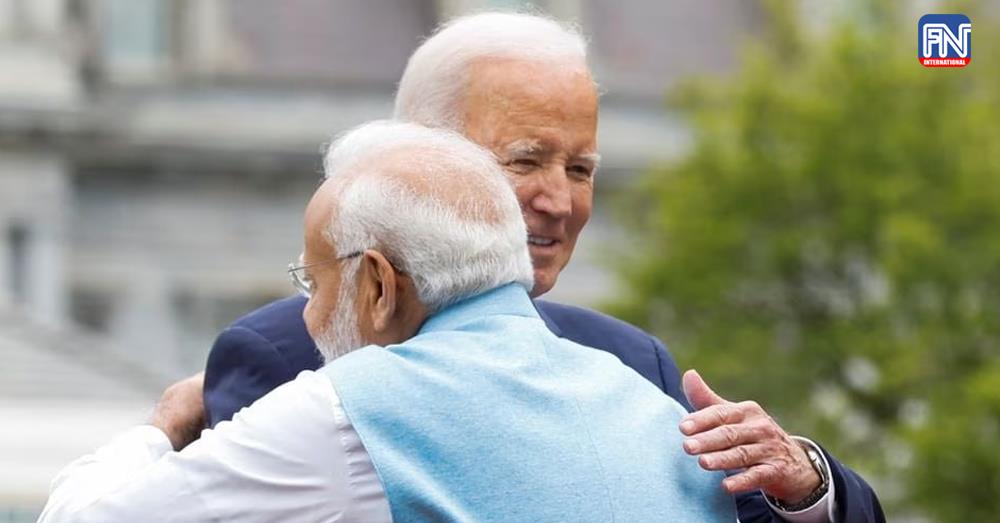WASHINGTON, June 22 (Reuters) - U.S. President Joe Biden and Narendra Modi hailed a new era in their countries' relationship after the White House rolled out the red carpet for the Indian prime minister on Thursday, touting deals on defense and commerce aimed at countering China's global influence.
The partnership is "stronger, closer and more dynamic than at any time in history," Biden told reporters at a joint press conference with Modi after the two leaders emerged from Oval Office talks where differences on Russia and human rights were on the table.
The economic relationship is "booming," Biden said, with trade more than doubling over the past decade.
Though the countries are not formal treaty-bound allies and India has long relished its independence, Washington wants Delhi to be a strategic counterweight to China. While neither leader criticized Beijing directly in official statements, they alluded to the Xi Jinping-led government.
"The dark clouds of coercion and confrontation are casting their shadow in the Indo Pacific," Modi told Congress. "The stability of the region has become one of the central concerns of our partnership."
After Biden and Modi spoke privately for more than two hours, a joint statement included a warning of rising tensions and destabilizing actions in the East and South China Sea and stressed the importance of international law and freedom of navigation.
"The challenges and opportunities facing the world in this century require that India and the United States work and lead together, and we are," Biden said as he welcomed Modi to the White House.
The two leaders later appeared together at a state dinner that featured a number of Silicon Valley executives on the guest list, including Apple's Tim Cook, 23andMe CEO Anne Wojcicki, Google CEO Sundar Pichai, OpenAI CEO Sam Altman, among others.
With the slightly Indian-accented dinner, the Bidens followed a White House tradition of serving guests from abroad food that has faint echoes of home with a strong American bent.
Modi is seeking to raise the status that India, the world's most populous country at 1.4 billion and fifth-largest economy, has on the world stage as a manufacturing and diplomatic powerhouse while navigating strained ties with China.
His participation in a White House press conference itself was a reflection of contrasting political traditions, marking the first time Modi has taken questions in such a format in his nine-year tenure. He took one question apiece from an American and an Indian journalist selected in advance, and dismissed criticism about India's human rights record.
Washington has been frustrated by India's close ties with Russia while Moscow wages war in Ukraine. Modi avoided direct mention of Russia, but told lawmakers the conflict was "causing great pain in the region. Since it involves major powers, the outcomes are severe."





